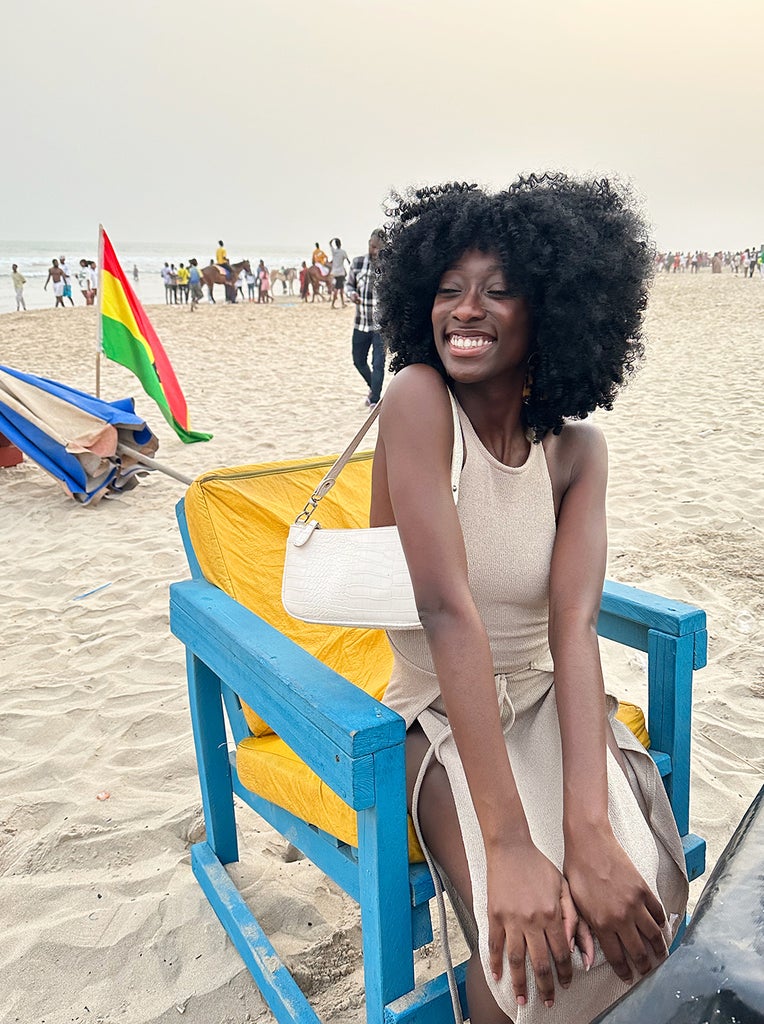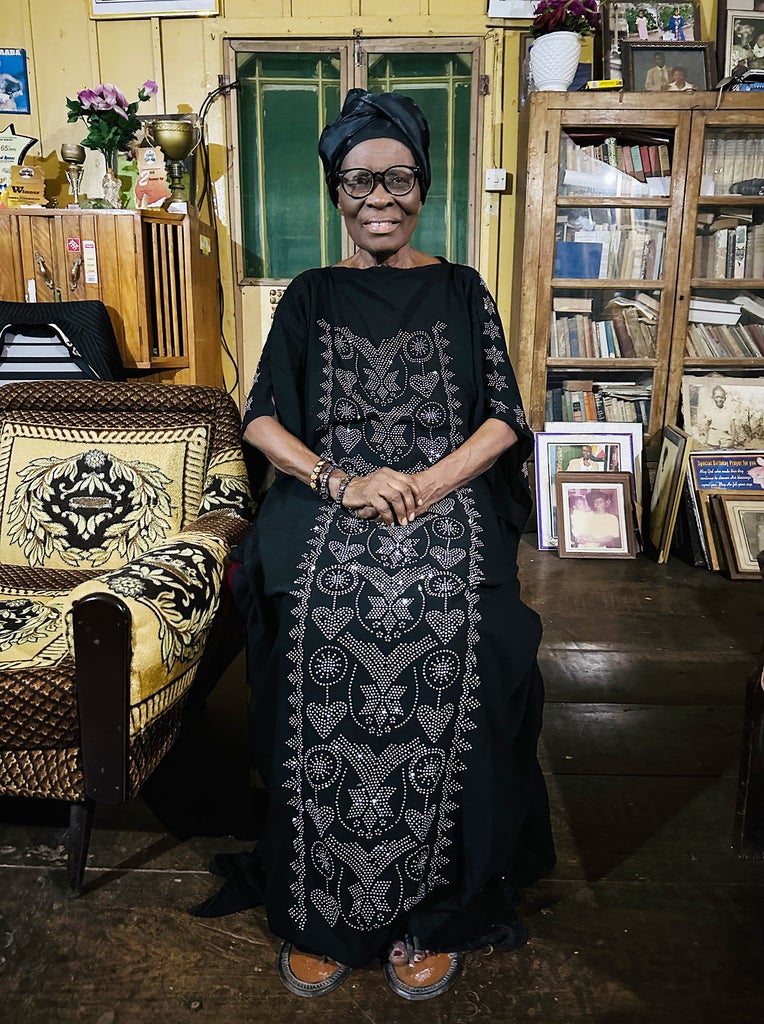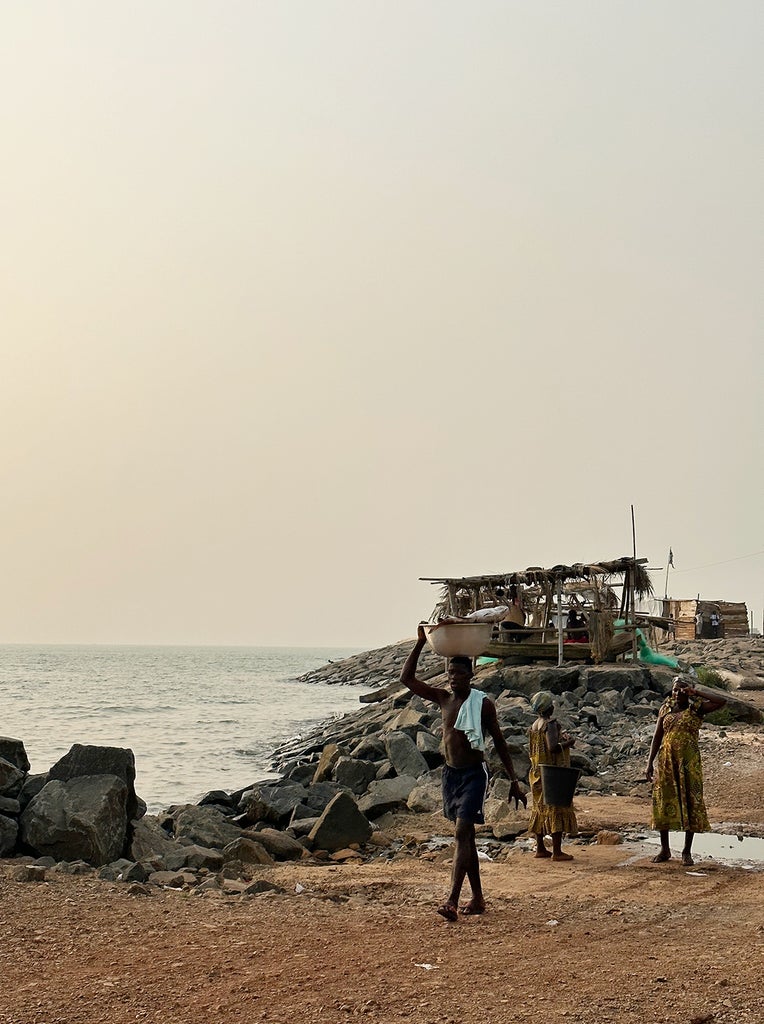
While I’ve never been shy about my Ghanaian heritage, it’s only in recent years that I have actively made efforts to connect to my roots outside of interactions with my immediate family. Growing up in a predominantly white neighbourhood in Ohio, Ghana always felt far away — more like a fun fact about me than a crucial part of my identity. I spent a handful of summers there as a kid, ungratefully grumbling about missing my friends and American food, but my connection to the continent was mostly superficial.
At some point, my lack of knowledge about Ghana became a legitimate point of embarrassment.In the first semester of my freshman year attending a PWI, I once showed up to an African Student Association meeting, hoping to make some friends. Instead, I sat quietly in the corner feeling intimidated by my peers who knew so much about their parent countries. They spoke the languages. They knew how to make the foods. They were rooted. Meanwhile, I was out of my depth. I never went back to another meeting.
A decade later, I now live in New York City where the African community is delightfully robust. I’ve found a circle of incredible friends from all over the diaspora who have helped me reclaim this part of myself. While it’s never too late to connect to my heritage, I lament for that younger version of me who felt a bit lost. Even then, though I didn’t quite recognise it at the time, I knew on some level that strengthening my connection to the continent and the diaspora was necessary for me to finally feel connected to myself. Enter: “Detty December.”

You’d be hard pressed to find another travel destination as popular and buzzy right now as west Africa in December. At the end of the year, tourists from all over the diaspora flock to Accra, Ghana’s capital, (typically after a trip to nearby Lagos, Nigeria) to enjoy all the food, sights, history, and of course, the nightlife that the area has to offer. It’s much easier now than when I was younger to find entry points in mainstream media into African culture. From the Black Panther films to Afrobeats artists topping the charts, African culture is now front and centre in a way that it never was in the past. It’s just…cool to be African right now.
Global corporations have been taking note. In 2021, United Airlines launched its direct route to Ghana from D.C., granting a whole new group of American travellers easier access to west Africa. In 2022, the airline partnered with Chance the Rapper and the Black Star Line Music Festival to provide discounted flights to Ghana during Detty December as a way to encourage travellers to take advantage of the route. For me, 2022 marked ten years since I’d last visited home, and with the increasing popularity of Accra as a travel destination, I was itching to see what it would be like to visit as an adult. I was thrilled when United Airlines actually agreed to fly me to Ghana to experience everything the country has to offer.
I knew on some level that strengthening my connection to the continent and the diaspora was necessary for me to finally feel connected to myself.
Enjoyment is the name of the game during Detty December, and there’s no shortage of things to do when you’re out there. There are networking brunches, panels, and events galore, all aimed at connecting the diaspora in a more tangible way. Music festivals like Afrochella (renamed to Afrofuture amidst a lawsuit from Coachella) bring in tens of thousands of music lovers to enjoy global acts like Burna Boy, Asake and more. Beyond the music acts, I also loved visiting the Artists’ Alliance Gallery, Ghana’s largest art gallery boasting ocean views and three stories of traditional and contemporary African art, both for sale and for exhibition. Also a must-see are its historical sights like the Elmina Castle, a former slave castle that provides tours to share the difficult but nonetheless important parts of Ghana’s history. There are also a number of incredible restaurants serving all kinds of cuisines. (I recommend Buka for high-end Ghanaian food, and Bondai for incredible cocktails) And of course, there are the parties. You could easily party until sunrise every night for a month if that’s what your heart desires – mine did, once or twice. On any given night, you’ll find beautiful Black people dancing to the latest Afrobeats and high life hits and having the time of their lives at hot spots like Polo Beach Club and Bloom Bar. Don’t worry about the fact that it’s seven in the morning on a Tuesday. Didn’t you hear? It’s Detty December!

The parties were certainly partying, but the best part of my trip was undoubtedly connecting with my family in Ghana. For the first time in a decade, I was able to visit my grandma Agnes in her hometown of Axim. My grandma has lived in Ghana for all 87 years of her life, a former headmaster who now serves as paramount Queen Mother of the Upper Axim region. (I’m a princess, y’all — talk to me nice!) Most regions and villages in Ghana appoint a Queen Mother from the royal family. There are thousands of women in the position across the country, but as paramount Queen Mother of the Upper Axim region, my grandma rules over the various queen mothers and Upper Axim region as a whole. As I sat and talked with our family’s matriarch in her living room where I spent summers watching old movies as a kid, I felt so much pride in where I come from as well as gratitude for our conversation and the ability to learn more about her life. Spending time with my grandmother, my aunties and uncles, and my cousins reminded me that Ghana is my home as much as the United States is.
Though I personally have family in Ghana, Black people from across the diaspora can also have a home away from home. In fact, Ghana actively encourages it; in 2019, the country announced The Year Of Return, a major campaign marking 400 years since the first recorded arrival of slaves arriving in the US, and aimed at inviting Black Americans to visit the country and learn more about their ancestral home. (Disclaimer: not all of the diaspora comes from Ghana; many Black diasporans also have roots in Nigeria, Benin, Togo, and Angola.) This energy has continued today, and many native Ghanaians have made it a point to be as welcoming as possible to Black travellers. As soon as I landed at Kotoka Airport, the passport control attendant wished me and my friends a warm “Akwaaba, welcome home.” We felt at ease moving through Ghana, surrounded by people who looked like us and temporarily free from the burden of being othered.

For Black women especially, it can be extremely healing to be in environments where our beauty is not only recognised but celebrated. Feeling myself isn’t unique, but it hit different in Ghana. I felt very beautiful and confident in my skin in Ghana. When I feel confident here in the US, it’s in spite of constant messaging (in the media, from trash men, etc.) that tells me I shouldn’t. In Ghana, it wasn’t an act of defiance to feel beautiful but a given. It was a gift to be allowed to just exist in this way, even if just for a couple of weeks.
If this all feels like an advertisement for Ghana, it is! I strongly encourage Black people from all over the diaspora to add countries on the continent to their travel bucket list, starting with Ghana. (I’m biased, what can I say?) I left with a sense of self-assuredness that I really didn’t expect. The confidence that comes from feeling like you belong simply can’t be understated. It’s not something that Black folks that live outside of predominantly Black areas get to experience often, but that doesn’t mean it doesn’t exist.
Next time you’re considering your travel plans, please add African countries to the list. I promise, you won’t regret it!
Hey Unbothered fam! We love to think of our award-winning Go Off, Sis podcast as the homegirl(s) in your head. We’ve been kikiing with you and bringing you entertaining guests, real conversations, and the latest gossip — as we do! But we want to know from you how we could be a better homegirl to you in 2023. Fill out our audience survey here and let us know what you want to hear from us next!
Like what you see? How about some more R29 goodness, right here?
Afrobeats & The Diaspora’s Journey Home